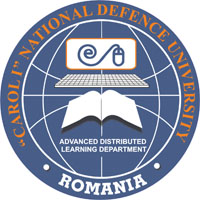STUDENT-TUTOR INTERACTION IN VIRTUAL COMMUNITIES - PSYCHO-SOCIAL APPROACH
STUDENT-TUTOR INTERACTION IN VIRTUAL COMMUNITIES - PSYCHO-SOCIAL APPROACH
Author(s): Cristina-Dana MituSubject(s): Education
Published by: Carol I National Defence University Publishing House
Keywords: e-Learning; virtual class; online course; mobile–learning platforms; virtual community; psycho-social approach
Summary/Abstract: This paper explores the importance of the interaction in the online teaching environment and the investigation of this new type of learning. It also aims to identify mechanisms and methods of communication in the virtual community between students and tutors so that each student can gain insight into the information provided in accordance with their education, culture and areas of interest. Through the diversity and complexity of context, the Web environment promotes collaborative action at the level of the educational act, through the interaction of the student with the instructor or other students. The penetration of new communication technologies in education has led to the rethinking and reorganization of the educational systems, implicit with regard to the role of teachers. Thus, the eLearning system was developed which, compared with the traditional one, offers new ways of transmitting knowledge. Teaching in virtual learning space requires a change of paradigm, so, if the traditional teaching model is centered on the teacher who tries to transfer knowledge to his students, in the e-Learning environment teaching is centered on the relationship between teacher-student and student-knowledge. The paper will also approach the method of presentation of the educational content for mobile-Learning platforms. The main element that has to be taken into consideration at the time of the creation of such content is the fact that the m-learning has its peculiarities, among which the most important is the diversity of external factors that can distract, interrupt or disrupt the educational activity. That's why the content should be dosed in small structures to synthesize the ideas. A virtual group can meet the most unexpected categories of students that the instructor is meant to co-ordinate and to help them communicate in authentic way. Traditional education claims the prerogative of direct dialogue between teacher and students, which create an ideal framework for modeling personality, for maintaining the strong spirit of competition, but also for providing mutual psychological support. Without claiming exclusivity, virtual education offers new opportunities for communication and training, becoming more and more popular. Participation in an online course is regarded as a real life experience. The extraordinary interaction between students and tutor in a virtual community in which everyone participates, is considered the educational challenge of the twenty-first century!
Journal: Conference proceedings of »eLearning and Software for Education« (eLSE)
- Issue Year: 11/2015
- Issue No: 02
- Page Range: 241-244
- Page Count: 4

